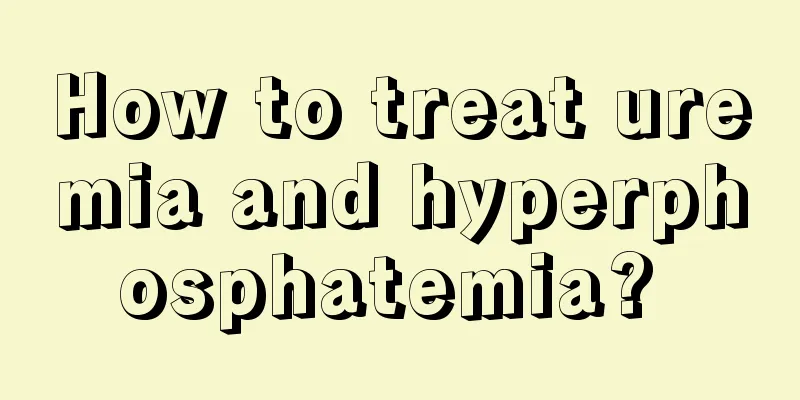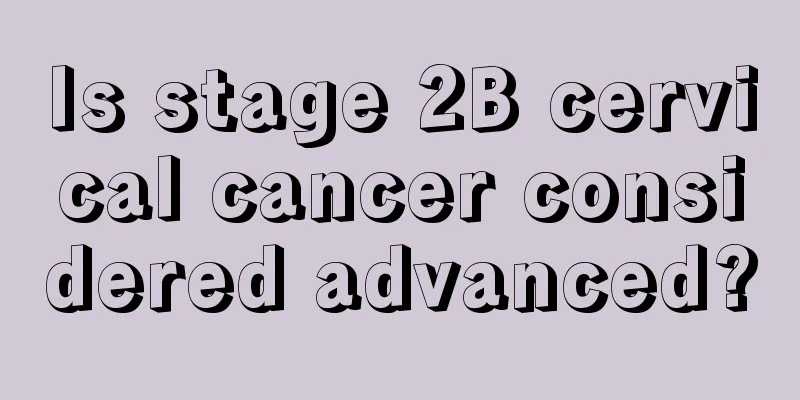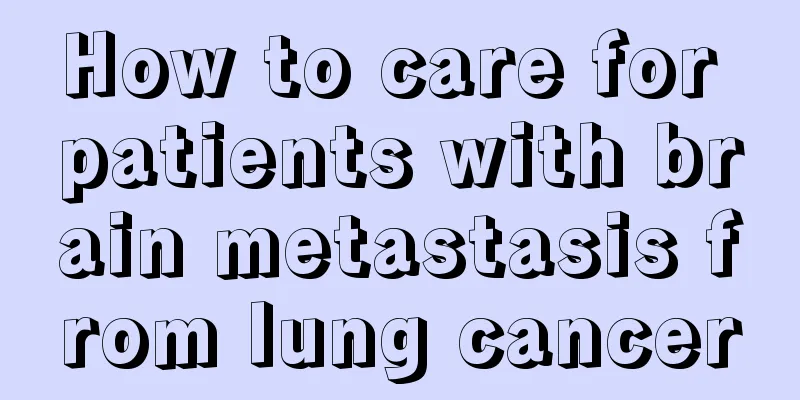How to treat uremia and hyperphosphatemia?

|
Many patients with uremia will develop hyperphosphatemia within six months. If not treated properly, it will pose a great threat to the health of the body. When both uremia and hyperphosphatemia occur, patients should first control their phosphorus intake in their diet and eat more protein-rich ingredients, such as egg whites, which are low in phosphorus and high in protein. Treatment of hyperphosphatemia in uremic patients (1) Control dietary phosphorus intake (limited to 800-1000 mg/d). Since protein is mainly combined with organic phosphorus and distributed in cells, the blood phosphorus content of protein-rich foods is also relatively high. Since the protein intake of uremia patients increases after dialysis, it is easy to cause hyperphosphatemia. Secondly, the absorption rate of plant protein phosphorus is lower than that of animal protein phosphorus. Studies have found that excessive restriction of phosphorus intake can lead to malnutrition and increase mortality. The intake of protein and phosphorus must be balanced, so it is more appropriate to use the phosphorus (mg)/protein (g) ratio to measure the phosphorus load in the diet. You should try to consume foods that are low in phosphorus and rich in protein, such as egg protein, and try to consume less foods that are high in phosphorus and low in protein. In addition, phosphorus is one of the main components of food additives, and patients with uremia should limit the intake of phosphorus-containing additives. (2) Increasing the number of dialysis sessions or extending the dialysis time can help remove phosphorus. Since phosphorus is mainly distributed in cells and tissues, the transport rate from inside cells to outside cells is very slow, and long-term dialysis is often required to achieve the purpose of phosphorus reduction. (3) The use of phosphate binders mainly reduces blood phosphorus levels by reducing gastrointestinal phosphorus absorption. The phosphate binders currently used in clinical practice mainly include calcium-containing phosphate binders, aluminum-containing phosphate binders, and non-calcium and non-aluminum phosphate binders. For patients with uremia on dialysis, if dietary phosphorus restriction and adequate dialysis still cannot control blood phosphorus levels, and blood calcium levels are within the normal range or reduced, it is recommended to use calcium-containing phosphate binders. If hypercalcemia persists or recurs, it is recommended to use non-calcium and non-aluminum phosphate binders. Precautions for hyperphosphatemia in patients with uremia To prevent potential hypercalcemia, it is recommended that daily intake of elemental calcium from calcium-containing phosphate binders should not exceed 1500 mg, and the total daily intake of elemental calcium should be less than 2000 mg. Aluminum-phosphorus binders are rarely used clinically due to the risk of aluminum poisoning, and long-term use should be avoided. The non-calcium and non-aluminum phosphate binders mainly include sevelamer and lanthanum carbonate. They have received widespread attention because they have no effect on blood calcium and parathyroid hormone, and can even reduce or delay vascular calcification. For uremic patients with persistent high phosphorus and vascular calcification, the use of non-calcium and non-aluminum phosphate binders is the best choice. It is recommended that phosphate binders should be taken with meals, should be chewed to achieve the best phosphorus-lowering effect, and the dosage should be adjusted according to the amount of phosphorus-containing food consumed. |
Recommend
Typical symptoms of gallbladder cancer
Nowadays, many people suffer from gallbladder can...
How to clean sheep eggs
Sheep eggs actually have very high nutritional va...
Is melanoma related to genetics?
Is melanoma related to heredity? Experts suggest ...
What are the complications after pituitary tumor surgery
Pituitary tumor is a benign tumor that occurs on ...
Why does my lower eyelid always twitch
Once again, I thought of the song: “If your left ...
Where is the first choice hospital for TCM treatment of lymphoma
Where is the first choice hospital for TCM treatm...
I like to put my hands under my head when I sleep
Everyone has their own favorite sleeping position...
Is it okay to postpone the baby's vaccination?
Many parents want to know whether the baby's ...
How to curl clothes that are too long to look good
With the development of the Internet, many people...
Often bites tongue to hint at this matter
In our daily life and diet, it often happens that...
How is gastric cancer examined?
Symptoms of early gastric cancer include dull pai...
What are the principles of pressure bandage?
Various traffic accidents occur every day. We all...
The reason why your stomach always growls
Everyone wants to have a healthy stomach, because...
Can lung cancer patients eat lychees?
Can people with lung cancer eat lychees? 1. Lung ...
How to remove heat and toxins from the body
Heat and toxins in the body will trigger a series...









